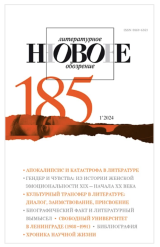For Aleksandr Solzhenitsyn, modernism was a sinister force, especially in Russia, where it foretold “the most physically destructive revolution of the twentieth century”. Richard Tempest explores Solzhenitsyn’s overt and covert (dis)engagement with Russian and European modernism, arguing that he employed modernist means to achieve anti-modernist ends.
Richard Tempest
 is associate professor and director of the Russian, East European, and Eurasian Center (REEEC) at the Slavic Department at the University of Illinois.
is associate professor and director of the Russian, East European, and Eurasian Center (REEEC) at the Slavic Department at the University of Illinois.
